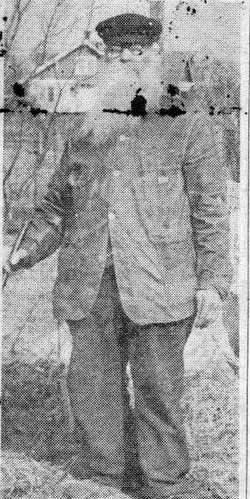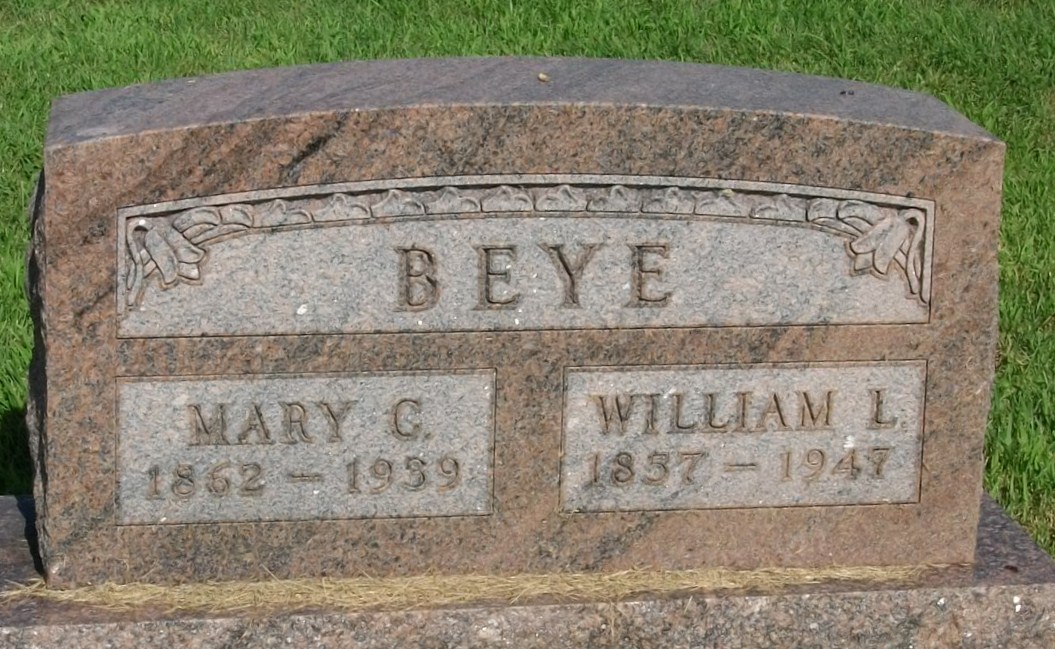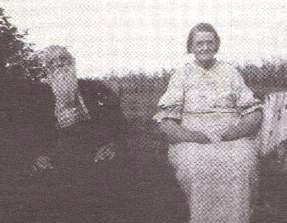The hard and confining toil of the farm is greatly relieved by varying it with stock raising and with fruit growing. The growth of the cities has been so great, the urban population in the United States now equaling and in most states surpassing the rural — in other words the growth of the non-producers has been so great, that the products of the farm command a higher price than ever before. This is notably so with live stock. When a farmer can secure such prices as have prevailed everywhere for live stock during the past few years, he can make their raising pay him exceedingly well for his labor. His actual farm work, then, will consist chiefly in growing hay and corn for his animals and in marketing the latter. Orchard and garden products may be grown as side ventures. Wheat may be raised for the price it will bring; the same of rye and barley. The growing of oats is a necessary branch of farming, because all horses thrive better on oats, especially in hot weather, than on any other grain. One of the most progressive of Marshall county's farmers and stock men is William L. Beye, of Jefferson township, who has made an intelligent study of farming with the best results in view and has concluded that more money can be made in the careful raising of good grades of live stock than anything else to which the farmer can turn his attention.
Mr. Beye was born in Cook county, near Chicago, Illinois, October 21, 1857, the son of Henry and Dora (Vanderheye) Beye, both born in Germany, the father in Brunswick and the mother in Hanover. The paternal grandparents were born in Germany. The maternal grandparents were also natives of that country and there the grandfather lived and died, his widow subsequently marrying and she and her second husband emigrated to America, locating in Elgin, Illinois, where they both died. Henry Beye came to America in 1853 and his wife in 1854. He settled in Chicago where he at first engaged in the butcher business. He had been a veterinary surgeon in Germany, but he perfected his knowledge in this science after coming to Chicago and he learned the butcher business in the famous plant of the Armour Packing Company. Later turning his attention to farming, he bought eighty acres near Shamburg, a suburb of Chicago, and there he remained until the fall of 1869, buying one hundred and sixty acres in section 20, Jefferson township, Marshall county, just a mile east of where his son, William L., of this review, now resides. This country was then an unimproved prairie and his neighbors were few, but he went to work on his raw land, getting it in shape for cultivation and building a rude house for his family, which he brought here the following spring, and that remained his home until his death. He was very successful as a general farmer and accumulated a fine farm of four hundred and eighty acres in one place, and in all he owned near the town of Fort Emma in North Dakota, Nebraska and South Dakota the splendid aggregate of eleven hundred acres. He became one of the most substantial and influential men of the southern part of the county and was highly respected by all who knew him and was admired for his ability as a farmer and stock man. He kept a fine drove of Morgan horses and raised many cattle, feeding large numbers for the market, from time to time. His family consisted of eight children, one of whom died in early life and another, Emma, wife of Peter Fifer, ofMarshall county, Iowa, died September 17, 1908. He was a member of the Lutheran church and politically supported the Republican party, being quite active in the same, but was not an aspirant for office. His brother, William Beye, was for many years more or less prominent in the civic affairs of Cook county, Illinois, being treasurer of the county for sixteen years; he also held various other local offices, mostly pertaining to the schools; during the Civil war he served in the Union army in the Eighth Illinois Cavalry.
William L. Beye of this sketch grew to young manhood in Marshall county and attended the public schools here, but before leaving Cook county, Illinois, he learned veterinary surgery from a veterinary surgeon who was formerly in the Prussian army, and his first work was among sheep. This scientific knowledge has stood him in good stead in his subsequent life work. After coming to Marshall county, Iowa, in 1869 he attended both the day and night school. He found much in the pioneer life here to interest him, including the many Indians who were camped roundabout. Most of his early life was spent in farming, although he learned the machine business in the reaper works at Elgin, Illinois. He also learned the trade of masonry and he built many vaults.
Mr. Beye has been very successful in his life work and he is now the owner of one of the choice farms of the county, consisting of two hundred and forty acres, which he has kept well improved and well tilled. He has a large, commodious and substantial dwelling and many convenient outbuildings, his desirable and well located place bearing the name of "Pine Grove Stock Farm." As before intimated, he makes a specialty of stock raising and he is a breeder of Polled-Durham cattle and Arabian horses, his fine stock being admired by all who see them and finding a very ready market when offered for sale.
Mr. Beye was married in 1882 to Mary C. Paul, daughter of David Paul and wife, a highly respected pioneer family of the vicinity of Laurel, this county. To the subject and wife the following children have been born: Nellie M., Lewis W., Russell L. and John E.
Mr. Beye votes the Republican ticket in national elections, but is independent in local politics. He is a member of the Lutheran church and his wife belongs to the Methodist church. He hauled the first rock for the local Lutheran parsonage. He has ever taken a proper interest in local affairs of every kind.
"Past and Present of Marshall County, Iowa" Judge William Battin and F. A. Moscrip 1912 B. F. Bowen & Company Indianapolis, Indiana
pp 900
The hard and confining toil of the farm is greatly relieved by varying it with stock raising and with fruit growing. The growth of the cities has been so great, the urban population in the United States now equaling and in most states surpassing the rural — in other words the growth of the non-producers has been so great, that the products of the farm command a higher price than ever before. This is notably so with live stock. When a farmer can secure such prices as have prevailed everywhere for live stock during the past few years, he can make their raising pay him exceedingly well for his labor. His actual farm work, then, will consist chiefly in growing hay and corn for his animals and in marketing the latter. Orchard and garden products may be grown as side ventures. Wheat may be raised for the price it will bring; the same of rye and barley. The growing of oats is a necessary branch of farming, because all horses thrive better on oats, especially in hot weather, than on any other grain. One of the most progressive of Marshall county's farmers and stock men is William L. Beye, of Jefferson township, who has made an intelligent study of farming with the best results in view and has concluded that more money can be made in the careful raising of good grades of live stock than anything else to which the farmer can turn his attention.
Mr. Beye was born in Cook county, near Chicago, Illinois, October 21, 1857, the son of Henry and Dora (Vanderheye) Beye, both born in Germany, the father in Brunswick and the mother in Hanover. The paternal grandparents were born in Germany. The maternal grandparents were also natives of that country and there the grandfather lived and died, his widow subsequently marrying and she and her second husband emigrated to America, locating in Elgin, Illinois, where they both died. Henry Beye came to America in 1853 and his wife in 1854. He settled in Chicago where he at first engaged in the butcher business. He had been a veterinary surgeon in Germany, but he perfected his knowledge in this science after coming to Chicago and he learned the butcher business in the famous plant of the Armour Packing Company. Later turning his attention to farming, he bought eighty acres near Shamburg, a suburb of Chicago, and there he remained until the fall of 1869, buying one hundred and sixty acres in section 20, Jefferson township, Marshall county, just a mile east of where his son, William L., of this review, now resides. This country was then an unimproved prairie and his neighbors were few, but he went to work on his raw land, getting it in shape for cultivation and building a rude house for his family, which he brought here the following spring, and that remained his home until his death. He was very successful as a general farmer and accumulated a fine farm of four hundred and eighty acres in one place, and in all he owned near the town of Fort Emma in North Dakota, Nebraska and South Dakota the splendid aggregate of eleven hundred acres. He became one of the most substantial and influential men of the southern part of the county and was highly respected by all who knew him and was admired for his ability as a farmer and stock man. He kept a fine drove of Morgan horses and raised many cattle, feeding large numbers for the market, from time to time. His family consisted of eight children, one of whom died in early life and another, Emma, wife of Peter Fifer, ofMarshall county, Iowa, died September 17, 1908. He was a member of the Lutheran church and politically supported the Republican party, being quite active in the same, but was not an aspirant for office. His brother, William Beye, was for many years more or less prominent in the civic affairs of Cook county, Illinois, being treasurer of the county for sixteen years; he also held various other local offices, mostly pertaining to the schools; during the Civil war he served in the Union army in the Eighth Illinois Cavalry.
William L. Beye of this sketch grew to young manhood in Marshall county and attended the public schools here, but before leaving Cook county, Illinois, he learned veterinary surgery from a veterinary surgeon who was formerly in the Prussian army, and his first work was among sheep. This scientific knowledge has stood him in good stead in his subsequent life work. After coming to Marshall county, Iowa, in 1869 he attended both the day and night school. He found much in the pioneer life here to interest him, including the many Indians who were camped roundabout. Most of his early life was spent in farming, although he learned the machine business in the reaper works at Elgin, Illinois. He also learned the trade of masonry and he built many vaults.
Mr. Beye has been very successful in his life work and he is now the owner of one of the choice farms of the county, consisting of two hundred and forty acres, which he has kept well improved and well tilled. He has a large, commodious and substantial dwelling and many convenient outbuildings, his desirable and well located place bearing the name of "Pine Grove Stock Farm." As before intimated, he makes a specialty of stock raising and he is a breeder of Polled-Durham cattle and Arabian horses, his fine stock being admired by all who see them and finding a very ready market when offered for sale.
Mr. Beye was married in 1882 to Mary C. Paul, daughter of David Paul and wife, a highly respected pioneer family of the vicinity of Laurel, this county. To the subject and wife the following children have been born: Nellie M., Lewis W., Russell L. and John E.
Mr. Beye votes the Republican ticket in national elections, but is independent in local politics. He is a member of the Lutheran church and his wife belongs to the Methodist church. He hauled the first rock for the local Lutheran parsonage. He has ever taken a proper interest in local affairs of every kind.
"Past and Present of Marshall County, Iowa" Judge William Battin and F. A. Moscrip 1912 B. F. Bowen & Company Indianapolis, Indiana
pp 900
Family Members
Sponsored by Ancestry
Advertisement
Advertisement















